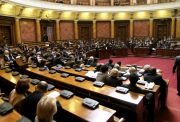- Serbia
Get to know Serbia
- Citizens
Culture and science
Health services
Pension and disability insurance
- Business
Employment
Economy
- Media
- Government
- Contact
Keep in touch
Contact form
Back
Keepin touch
Whether you have a question, comment, suggestion or any problem in the purview of the government, send us your message and we will try to respond as soon as possible. If your problem is not in our purview, we will forward your message to the relevant institution.
Q:
A:
Adoption of public property law to enable more rational use of property
Belgrade,
20 September 2011
Deputy Prime Minister for European Integration Bozidar Djelic said today that the adoption of a law on public property will enable decentralisation, a more rational use of property and reform of public sector in Serbia.
Expounding the Bill on public property in the Serbian Parliament, Djelic said that this act establishes three levels of ownership over public property – state, provincial and of the local self-government.
This law is one of the key laws that enable the implementation of decentralisation, as prescribed by the Serbian Constitution, he said and noted that citizens will benefit from this law in their everyday life.
Djelic recalled that a part of the amendment has been adopted which allows for a more efficient distribution of rights and duties among the three levels of authority, that are also the owners of the property.
The Autonomous Province of Vojvodina will get roads of secondary importance, namely roads that connect cities, while all other roads such as motorways and other state roads will remain in the property of the Republic of Serbia.
Streets, squares, parks, municipal roads and unclassified roads will be owned by local self-governments, he said, noting that the adoption of these amendments took place after the talks with the Vojvodina government and the Standing Conference of Towns and Municipalities.
This bill introduces the division and categorisation of natural and mineral resources, goods of common interest and goods in general use, he said, adding that agricultural land is categorised as a resource of common interest, as well as forests and natural and cultural goods.
The goods in general use, according to this bill, are - public roads, railways, bridges, streets, squares, public parks, border and administrative crossings, he said.
Speaking about the status of public enterprises, Djelic said that they will be given a deadline for requesting the registration of their property by the founder, and noted that once companies register their property, they will be able to do business more rationally and efficiently.
This law is one of the key laws that enable the implementation of decentralisation, as prescribed by the Serbian Constitution, he said and noted that citizens will benefit from this law in their everyday life.
Djelic recalled that a part of the amendment has been adopted which allows for a more efficient distribution of rights and duties among the three levels of authority, that are also the owners of the property.
The Autonomous Province of Vojvodina will get roads of secondary importance, namely roads that connect cities, while all other roads such as motorways and other state roads will remain in the property of the Republic of Serbia.
Streets, squares, parks, municipal roads and unclassified roads will be owned by local self-governments, he said, noting that the adoption of these amendments took place after the talks with the Vojvodina government and the Standing Conference of Towns and Municipalities.
This bill introduces the division and categorisation of natural and mineral resources, goods of common interest and goods in general use, he said, adding that agricultural land is categorised as a resource of common interest, as well as forests and natural and cultural goods.
The goods in general use, according to this bill, are - public roads, railways, bridges, streets, squares, public parks, border and administrative crossings, he said.
Speaking about the status of public enterprises, Djelic said that they will be given a deadline for requesting the registration of their property by the founder, and noted that once companies register their property, they will be able to do business more rationally and efficiently.
-
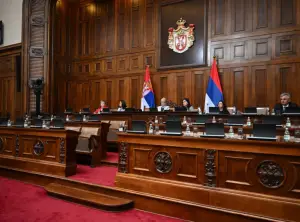 Belgrade, 7 November 2025
Belgrade, 7 November 2025Parliament adopts multiple laws
-
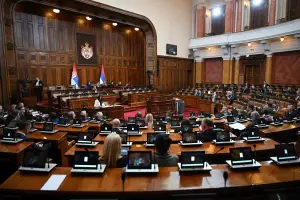 Belgrade, 22 October 2025
Belgrade, 22 October 2025Parliament adopts several laws, ratifies multiple international agreements
-
 Belgrade, 15 October 2025
Belgrade, 15 October 2025Vučić welcomes Ursula von der Leyen in front of Palace of Serbia
-
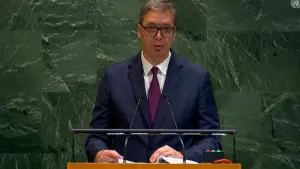 Belgrade/New York, 24 September 2025
Belgrade/New York, 24 September 2025Respect for UN Charter obligation of all countries
-
 Belgrade, 13 August 2025
Belgrade, 13 August 2025High level of understanding, agreement between Serbia, Austria
-
 Belgrade, 13 May 2025
Belgrade, 13 May 2025Serbia's sincere, firm commitment to European path, reforms and dialogue
-
 Belgrade, 13 May 2025
Belgrade, 13 May 2025Vučić welcomes European Council President in front of Palace of Serbia
-
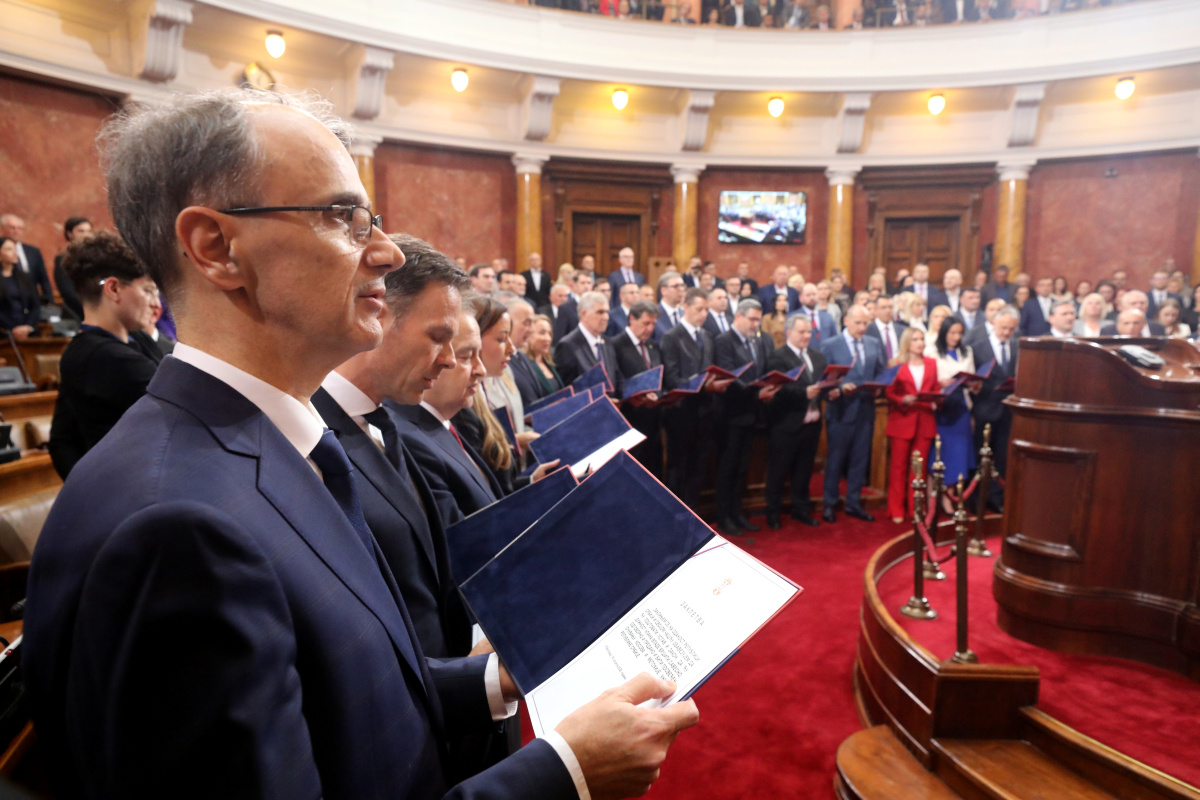 Belgrade, 16 April 2025
Belgrade, 16 April 2025New Serbian government voted in
-
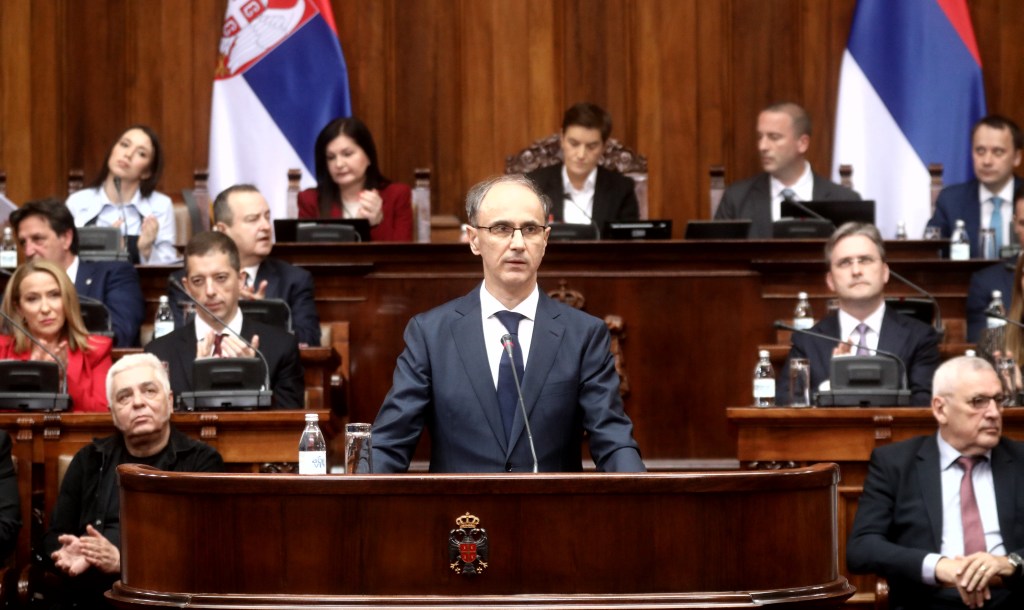 Belgrade, 15 April 2025
Belgrade, 15 April 2025Building unity through dialogue, tolerance, respect for value system
-
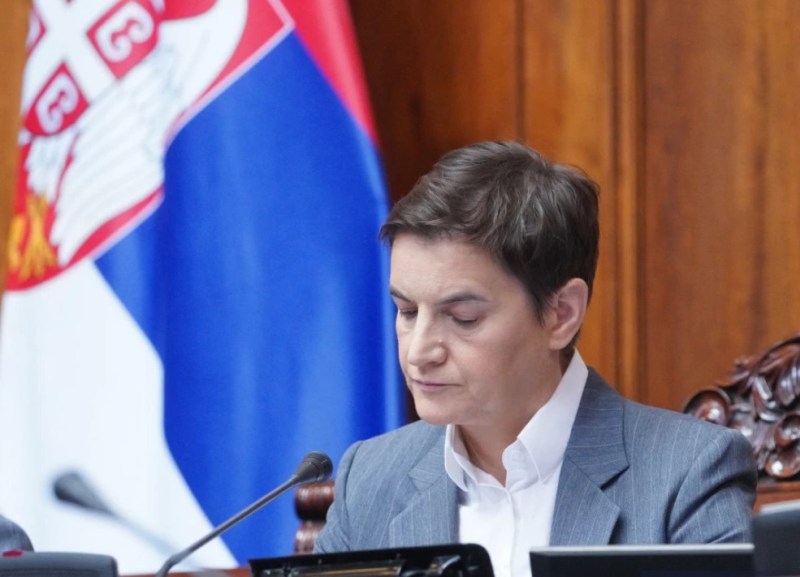 Belgrade, 14 April 2025
Belgrade, 14 April 2025National Assembly speaker convenes session on government election

